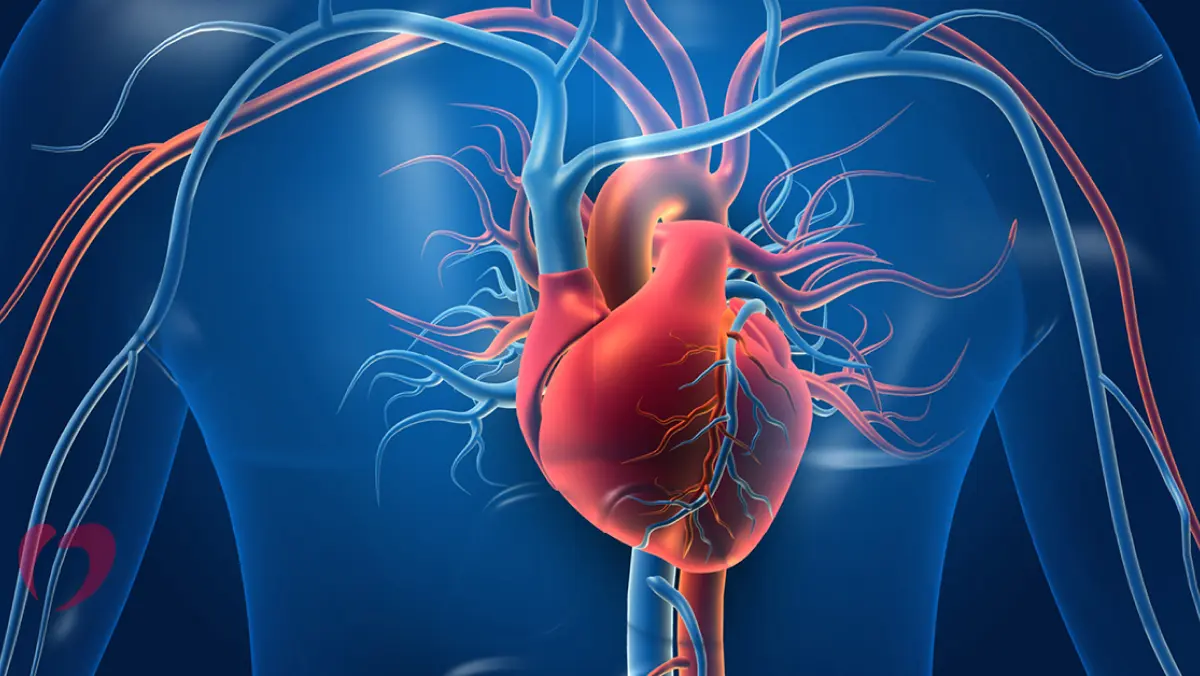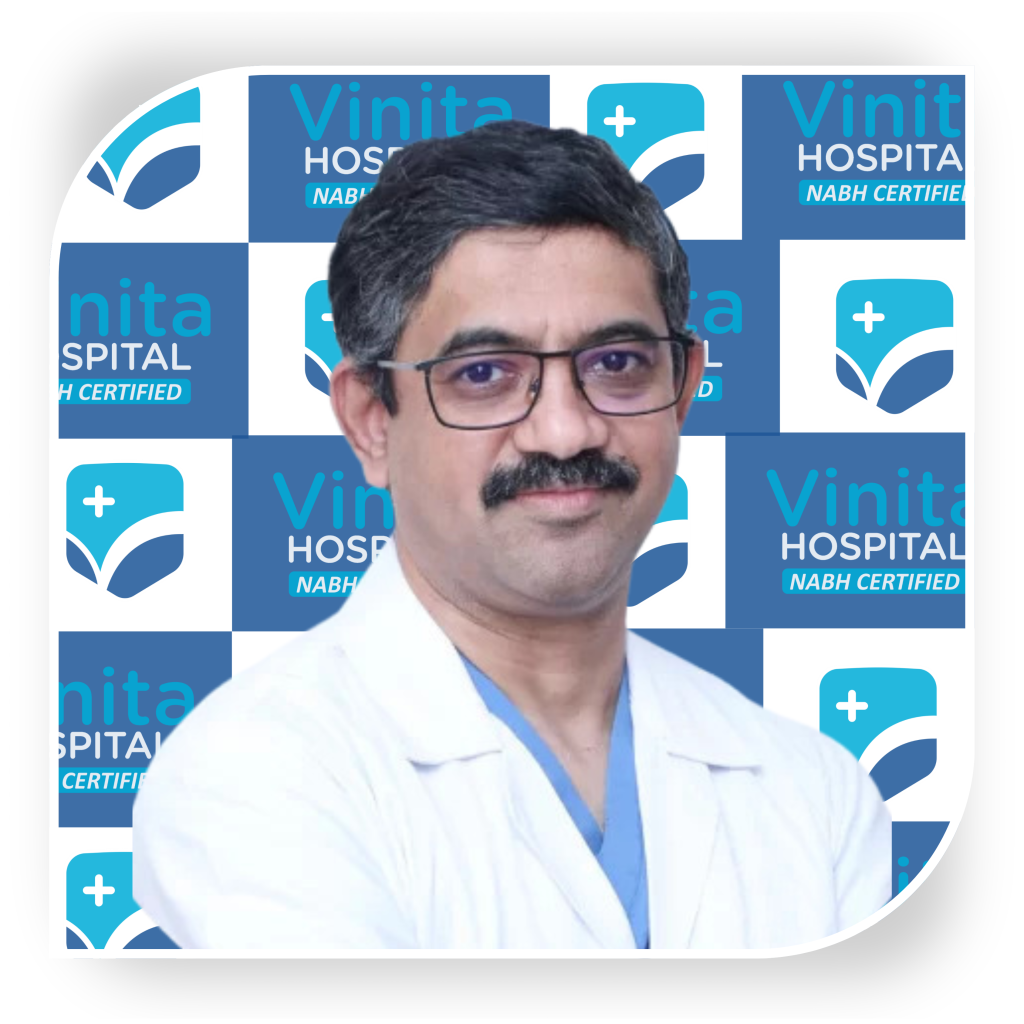Vascular surgery in Chennai is a specialized field of surgery focusing on the vascular system, which includes the blood vessels, lymph vessels, and the lymphatic system. Blood vessels, such as veins, arteries, and capillaries, play crucial roles in transporting blood throughout the body. Arteries carry blood away from the heart, veins return blood to the heart, and capillaries distribute oxygen-rich blood to body tissues.
The lymphatic system, composed of lymph vessels and lymphatic fluid, helps remove waste and toxins from the body. Issues within the vascular system can lead to various diseases, which often require intervention through vascular surgery. Vinita Hospital, known for its expertise in vascular surgeon in chennai, offers comprehensive diagnosis, treatment, and management of all types of vascular diseases.
Our Doctor
What Are Vascular Diseases?
Vascular diseases affect the components of the vascular system and are common among older individuals, especially those with high-risk factors such as high blood pressure, diabetes, heart disease, sedentary lifestyles, poor nutrition, and smoking habits. Without proper treatment, vascular diseases can lead to severe consequences, including limb amputations, strokes, and death.
Vascular diseases can affect any of the vascular system’s components. Some of the key diseases which are to be treated in the best vascular surgery hospital in Chennai like the Vinita Hospital include:
- Peripheral Artery Disease (PAD): This condition involves the blockage of arteries in the legs, causing pain and obstructing circulation. Without treatment, it can lead to sores and gangrene.
- Renal Artery Disease: Blocked arteries in the kidneys can result in high blood pressure, kidney failure, and potentially heart failure.
- Intestinal Ischemic Syndrome: Blocked blood vessels in the intestine affect digestive functions.
- Raynaud’s Phenomenon: Cold weather causes spasms in the arteries of the fingers.
- Carotid Artery Disease: Blockages in the carotid arteries, which supply blood to the brain, can lead to strokes.
- Carotid Artery Dissection: A tear in the artery wall can cause blood leakage, requiring immediate vascular surgery in Chennai.
- Buerger’s Disease: Blocked arteries in the legs and arms affect blood supply, causing pain and potential gangrene.
- Carotid Artery Aneurysm: An aneurysm causes the vessel wall to bulge, risking rupture and loss of consciousness.
- Aortic Aneurysm: A bulge in the aorta can cause chest pain, breathing problems, and even death if it bursts.
- Varicose Veins: Damaged valves in veins cause them to bulge and appear purple, leading to pain and swelling.
- Spider Veins: Swollen capillaries in the legs and feet may bruise but are generally not harmful.
- Deep Vein Thrombosis (DVT): A clot in a leg vein can cause pain, swelling, and cramps. If the clot moves to the lungs, it becomes a medical emergency.
- May-Thurner Syndrome: Compression of the venous outflow in the lower extremities can cause swelling and pain.
- Pulmonary Embolism: A blood clot in the lungs leads to chest pain, difficulty breathing, and coughing up blood. Large clots can be fatal without immediate intervention.
- Lymphedema: Fluid buildup in the lymphatic system causes swelling and pain, requiring proper treatment to avoid complications.
Vascular Surgery Treatments and Procedures
The treatment and procedures for vascular diseases vary based on the type and severity of the condition. Vinita Hospital, renowned for vascular surgery in Chennai, offers a range of treatment options, including lifestyle changes, medications, catheter-based endovascular methods, and surgical interventions.
Minimally Invasive Endovascular Treatment Options
- Thoracic Endovascular Aortic Repair (TEVAR): This procedure treats thoracic aortic aneurysms using a catheter and stent-graft, often with a small groin incision.
- Endovascular Aneurysm Repair: Similar to TEVAR, this procedure treats abdominal aortic aneurysms.
- Angioplasty and Stenting: A catheter-guided balloon opens narrowed arteries, treating conditions like peripheral arterial disease.
- Fenestrated Endovascular Aneurysm Repair: A stent-graft preserves blood flow to vital organs through a small groin incision.
- Percutaneous or Laser Atherectomy: A specialized catheter removes atherosclerotic plaque from arteries.
Surgical Treatments
- Open Abdominal Aortic Surgery: An abdominal incision allows access to the aorta for treating aortoiliac occlusive disease and abdominal aortic aneurysms.
- Bypass Surgery: Redirects blood flow around blockages using a vein graft or synthetic material.
- Open Carotid and Femoral Endarterectomy: Surgical removal of plaque buildup in arteries.
Benefits of Vascular Surgery
- Improved Blood Flow: Enhances circulation and reduces complications.
- Prevents Organ Damage: Addresses vascular issues to protect organs.
- Minimizes Stroke Risk: Treats conditions contributing to strokes.
- Pain Relief: Reduces pain associated with vascular disease.
- Improved Mobility: Enhances circulation in extremities, reducing leg pain.
- Reduced Heart Attack Risk: Treats coronary artery conditions.
- Minimally Invasive Options: Advanced techniques promote faster recovery.
Conclusion
Preventing vascular diseases involves maintaining a healthy lifestyle, including quitting smoking, eating a balanced diet, exercising regularly, and routine check-ups. Vinita Hospital, a leading provider of vascular surgery in Chennai, offers cutting-edge treatment and comprehensive care for all types of vascular diseases, ensuring optimal patient outcomes.
Read also Gynaecology Hospital in Chennai




